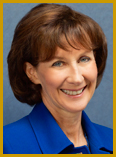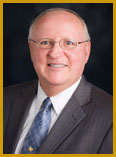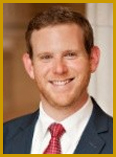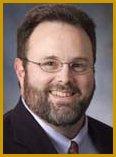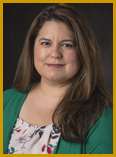Global Webinars and Summits
TMIT Global has led a global community of practice of clinical, administrative, and patient safety leaders since the 1980s. More than 200 free monthly webinars have been delivered over more than 14 years. They are served by 500 subject matter experts who have been speakers and advisors on a number of patient safety initiatives. The webinars are posted monthly at www.SafetyLeaders.org.

January 18, 2024
Consent to Save Your Life II: The 5 Rights to My Identity™

 Join us for Part II of our work in personal identity and privacy consent. Along with the benefits of the development of machine learning and artificial intelligence comes enormous risks. First party data comes from a contractual relationship between you and an organization. Second party data is that which is shared about you by such a relationship. Third party data is generated by many sources unbeknownst to you. Cookies are going away. Regulations are coming to protect you. Know about them.
Join us for Part II of our work in personal identity and privacy consent. Along with the benefits of the development of machine learning and artificial intelligence comes enormous risks. First party data comes from a contractual relationship between you and an organization. Second party data is that which is shared about you by such a relationship. Third party data is generated by many sources unbeknownst to you. Cookies are going away. Regulations are coming to protect you. Know about them.
Join us to address the 5 Rights of My Identity™
-
-
-
- The Right Consent: Informed consent to data use and of privacy preferences.
- The Right Information: The right information can save your life…the wrong information may harm you.
- The Right Access: The right access to your information means you agree to and to the conditions of such access.
- The Right Use: The right means you agree to the details of the use of your personal information.
- The Right Protection: The right protection means your data is stored and used with minimal risk of breach or use by fraudsters.
-
-
Also addressed are the threats to our caregivers, patients, families and consumers as we address the incredible value of our personal information and the incredible clinical and financial risk to us if that information is misused. Learn why you need a medical power of attorney and why you need to understand consent.
December 21, 2023
Consent to Save Your Life: The 5 Rights to My Identity™

 Along with the benefits of the development of machine learning and artificial intelligence comes enormous risks. First party data comes from a contractual relationship between you and an organization. Second party data is that which is shared about you by such a relationship. Third party data is generated by many sources unbeknownst to you. Cookies are going away. Regulations are coming to protect you. Know about them.
Along with the benefits of the development of machine learning and artificial intelligence comes enormous risks. First party data comes from a contractual relationship between you and an organization. Second party data is that which is shared about you by such a relationship. Third party data is generated by many sources unbeknownst to you. Cookies are going away. Regulations are coming to protect you. Know about them.
Join us to address the 5 Rights of My Identity™
-
-
-
- The Right Consent: Informed consent to data use and of privacy preferences.
- The Right Information: The right information can save your life…the wrong information may harm you.
- The Right Access: The right access to your information means you agree to and to the conditions of such access.
- The Right Use: The right means you agree to the details of the use of your personal information.
- The Right Protection: The right protection means your data is stored and used with minimal risk of breach or use by fraudsters.
-
-
November 16, 2023
The 5 Rights of Pain Care: Battling the Opioid Crisis
The opioid crisis dominates the news; however, solutions are elusive. Opioids are always near the top of the list of medications causing adverse drug events. Counterfeit medications and illicit drugs are stealing the future of our youth.
Join us now in the fall of 2023 to address the 5 Rights of Pain Care:
-
-
-
- The Right Tests: Undertaking the right tests and investigations.
- The Right Diagnosis: Making the right diagnosis of the pain generators.
- The Right Treatment: The right care for both the short-term and long-term pain issues.
- The Right Monitoring: The right continuous assessment and adjustments to pain care.
- The Right Prevention: The right steps for preventative maintenance to keep pain at bay.
-
-
October 19, 2023
Healthcare Professional Fraud: Imposters Part III
Fraud in healthcare and higher education is at an all time high. Financial harm to caregivers, educators, and their families has been an invisible and emerging threat.
Join our speakers and reactors to address the risk to and from healthcare financial fraud. Research reveals 20% of U.S. households reported medical debt and that 43 million credit reports showed medical collections. Much of the debt is related to aggressive and sometimes fraudulent methods. Professional fraud and conflict of interest is an enormous problem contaminating our R&D and has infected even our most prestigious organizations.
September 21, 2023
Consumer & Professional Fraud: Imposters Part II
Fraud in healthcare and higher education is at an all time high. Physical, financial, and reputational harm of caregivers, educators, and their families are emerging threats.
Join our speakers and reactors to address the risk to and from medical identity theft, contamination, and errors that result from data breaches.
Professional fraud and conflict of interest is an enormous problem contaminating our R&D and has infected even our most prestigious organizations.
August 17, 2023
Safety of Rising Freshmen: Battling Failure to Rescue
 Join our speakers and reactors to address the most common threats of the leading causes of preventable death with bystander rescue.
Join our speakers and reactors to address the most common threats of the leading causes of preventable death with bystander rescue.
Our youth are our future. Rising college freshmen face one of the most dangerous times in their lives. Rising high school freshmen face new threats as well. care that EVERY community can employ. Sudden cardiac arrest, active shooter events, anaphylaxis, choking and drowning, opioid overdose, infections, and suicide related to bullying claim an enormous toll. The enemy – failure to rescue.
July 20, 2023
The Imposters: An Emerging Threat to Safety
A shocking and surprisingly growing invisible threat to safety is the impact of imposters. They range from those who have bought nursing degree documentation, to those posing as physicians, to those peddling fraudulent products, services, and technologies.
The use of misinformation, malinformation, and disinformation to discredit competitors is another area of harm to patients, families, and caregivers.
June 15, 2023
Workplace Violence IV: Insider Threats in 2023
The expanded definition of the Joint Commission for workplace violence has created a NEW set of incidents that make the behaviors of howlers workplace violence: “An act or threat occurring at the workplace that can include any of the following: verbal, nonverbal, written, or physical aggression; threatening, intimidating, harassing, or humiliating words or actions; bullying; sabotage; sexual harassment; physical assaults; or other behaviors of concern involving staff, licensed practitioners, patients, or visitors.”
May 18, 2023
Workplace Violence IV: Hunting and Howling in 2023
Active Shooter Events and Lethal Force Incidents are an Epidemic. Listen to our experts discuss modern threat management science applied to well known attacks. They will discuss how to differentiate between those who are the “hunting” who will strike out to wound and kill and those who are “howling” who complain, make threats, and frighten the community.
The expanded definition of the Joint Commission for workplace violence has created a NEW set of incidents that make the behaviors of howlers workplace violence: “An act or threat occurring at the workplace that can include any of the following: verbal, nonverbal, written, or physical aggression; threatening, intimidating, harassing, or humiliating words or actions; bullying; sabotage; sexual harassment; physical assaults; or other behaviors of concern involving staff, licensed practitioners, patients, or visitors.”
April 20, 2023
Workplace Violence III: Dealing with NEW High Impact Incidents
We are all dealing with NEW incidents. We will discuss case studies and apply the principles of prevention, preparedness, protection, and performance improvement.
The expanded definition of the Joint Commission for workplace violence has created NEW set of incidents: “An act or threat occurring at the workplace that can include any of the following: verbal, nonverbal, written, or physical aggression; threatening, intimidating, harassing, or humiliating words or actions; bullying; sabotage; sexual harassment; physical assaults; or other behaviors of concern involving staff, licensed practitioners, patients, or visitors.”
March 16, 2023
Workplace Violence II: Beyond Physical Harm – Systems Issues
This is a call to action for everyone. Workplace violence is impacting everyone in healthcare and higher education.The Joint Commission definition expanded definition goes far beyond physical harm and beyond caregivers: “An act or threat occurring at the workplace that can include any of the following: verbal, nonverbal, written, or physical aggression; threatening, intimidating, harassing, or humiliating words or actions; bullying; sabotage; sexual harassment; physical assaults; or other behaviors of concern involving staff, licensed practitioners, patients, or visitors.”
February 16, 2023
Workplace Violence in 2023: A Threat to Caregivers, Staff, Educators, and the Community
January 19, 2023
Teaching Bystander Rescue Care: A Survive and Thrive Guide™

 This is a call to action for caregivers and community leaders. Caregivers, teachers, risk managers, safety leaders, educators, scout leaders, lifeguards, and coaches must step up to address Preventable Death and Severe Injury to our youth and families. See our recent December and November Webinars.
This is a call to action for caregivers and community leaders. Caregivers, teachers, risk managers, safety leaders, educators, scout leaders, lifeguards, and coaches must step up to address Preventable Death and Severe Injury to our youth and families. See our recent December and November Webinars.
Our Public Safety Net has never been more stressed, and our Public Health Education programs can’t keep up with the threats. In this webinar, you will be provided with the latest concepts, tools, and resources to address emergencies:
- Opioid Overdose Poisoning: These are claiming almost 300 Americans a day. Counterfeit medications laced with fentanyl, vaping, and THC overdoses are threatening our youth and workforce.
- Major Trauma: Everyone needs to learn to control severe bleeding and trauma, such as provided by the Stop-the-Bleed®. Concussion best practices are evolving. All need to know what to do.
- CPR and AED Use: The latest guidelines need to be explained, and deliberative practice will pay off. The case for CPR/AED certification has never been stronger.
- Choking and Drowning: A major cause of death in our young, with many deaths and preventable harm .
- Anaphylaxis: Still a major problem requiring educators and families to prioritize best practices and availability of epinephrine injectors.
- Infections: The current tri-demic of flu, RSV, and Covid demand that we underscore the basics.
- Transportation Accidents: Drive-over accidents of children and bystander care at motor vehicle accidents claim way too many lives.
Learn how to teach bystander care practices to those in your community. Families you serve can dramatically reduce risk, harm, and liability.
Preventable Death and Severe Injury to students educators, caregivers, and staff is on the rise. See our November 2022 Webinar.
They are occurring on and off campus. Students and all families can act over the holidays to have a much safer 2023.
In this webinar we will provide concepts, tools, and resources students, families, educators, and caregivers can apply:
-
-
-
- Prevention: Both primary prevention of events at all and secondary prevention of harm from unavoidable events.
- Preparedness: Readiness for incidents that can impact our youth, young adults, and their friends including detailed checklists and plans.
- Protection: Reduction of harm from unavoidable events with emphasis on Bystander Rescue Skills.
- Performance Improvement: What we can learn from prior incidents of opioid, alcohol, and THC poisoning all of which may be related to falls and motor-vehicle accidents. And less common choking, drowning, and lethal force incidents.
-
-
Learn how to reduce risk, harm, and liability for severe trauma, motor vehicle accidents, opioid overdose, vaping, drowning, choking, and the other common causes of harm to our youth and young adults. Be ready for less common lethal force incidents of active shooters and stabbings.
November 17, 2022
Preventable Death & Severe Injury: An Emerging Threat to Staff and Students

 Both invisible and visible threats cause unintentional and preventable Death and Severe Injury to educators, caregivers, staff, and students. The risks of these are growing and extends far beyond active shooter events. Not only are they occurring onsite, but in the community.
Both invisible and visible threats cause unintentional and preventable Death and Severe Injury to educators, caregivers, staff, and students. The risks of these are growing and extends far beyond active shooter events. Not only are they occurring onsite, but in the community.
Many leaders feel responsible for the public safety of their staff and students families in the community.
Leaders from healthcare organizations and institutions of higher learning are working to deal with an accelerating threat stream. Over the months to come we will be addressing the 30 threats keeping leaders up at night. In this webinar we will cover unintentional death and harm due to:
-
-
-
- Accidents: That occur on campus as well as off campus to staff and students.
- Failure to Rescue: Deaths and harm that may be preventable with non-medical bystanders rescue care.
- Opioid OD & Poisoning: Opioid related deaths due to overdoses and from counterfeit drugs laced with fentanyl cause 293 deaths per day in the U.S.
-
-
Learn from leaders of our finest large and small institutions and how they are dealing with both visible and invisible threats.
October 20, 2022
Emerging Threats: The Top 30

 There are at least 30 emerging threats keeping leaders up at night. They range from active shooter and lethal force incidents to employee fraud, medical harm, and cybersecurity issues. Many policies and the unwritten rules governing our healthcare providers are destroying their brands.
There are at least 30 emerging threats keeping leaders up at night. They range from active shooter and lethal force incidents to employee fraud, medical harm, and cybersecurity issues. Many policies and the unwritten rules governing our healthcare providers are destroying their brands.
Leaders from large and small academic and regional centers are working to deal with an accelerating threat stream. We will cover 30 topics that will drive our agenda for the next year.
-
-
-
- Inside Threats: Insider threats are just the tip of the iceberg. There are clinical, operational, and financial policies and actors who are responsible for enormous harm to caregivers, administrative staff, and the patients they serve.
- Outside Threats: The COVID crisis has truly tested our public safety system and our healthcare institutions. There are outside threats that may be low frequency, yet so high impact that we need to be prepared.
-
-
Learn from leaders of our finest large and small institutions and how they are dealing with both visible and invisible threats.
September 15, 2022
The Exploding Opioid Crisis: A Fiercely Emerging Threat

 There is no better example of “failure to rescue” than the opioid crisis – it is exploding. The public, our youth, our families, and our organizations are under attack. Most of us are unaware of the explosion of opioid overdoses until they hurt someone close to us. It is up to our healthcare and public safety leaders to act now. Please join us as we address the magnitude of the problem – the who, what, where, and why. Help us identify ways our patient safety community leaders can provide solutions through leadership, practices, and technologies. Critical issues include:
There is no better example of “failure to rescue” than the opioid crisis – it is exploding. The public, our youth, our families, and our organizations are under attack. Most of us are unaware of the explosion of opioid overdoses until they hurt someone close to us. It is up to our healthcare and public safety leaders to act now. Please join us as we address the magnitude of the problem – the who, what, where, and why. Help us identify ways our patient safety community leaders can provide solutions through leadership, practices, and technologies. Critical issues include:
-
-
-
-
- The Addiction Trap of our patients
- Counterfeit medications
- Fentanyl Contaminated drugs on the street
- New Contaminants in drugs on the street
- The Direct Attack on our children and youth
- Social Media – the “Perfect Delivery System”
- Narcan Training – What Everyone Should Know
- Diversion of medications within care centers
- The “5 Rights of Pain Management”
-
-
-

Our population is burned out on Coronavirus Issues, however there are critical questions we are all asking for this fall:
-
-
-
-
- Quarantine & Isolation – what’s the latest?
- Testing – what test and when?
- Masks – who, what, and when do I use them
- Vaccinations – what do I do now?
- Travel – what is the safest approach?
- Kids & Youth- what’s the latest?
- College Students – what are the unique threats?
- Family Safety Plans – what are important updates?
- How do I deal with Emergencies?
- Trusted Information – what source do I trust?
-
-
-
August 18, 2022
Active Assailant Response Design: Critical Static and Dynamic Factors

 The recent dramatic rise in active shooter and lethal force incidents demands that our organizations, caregivers, the public, our youth, and our families be prepared. Critical factors include:
The recent dramatic rise in active shooter and lethal force incidents demands that our organizations, caregivers, the public, our youth, and our families be prepared. Critical factors include:
-
-
-
-
- Fixed Structures and Systems
- Population Kinetics
- Special Events
- Unanticipated Surge Events
- Competency Currency of Rescue Care
- Regular Simulation Events
-
-
-
The sweet spot for High Performance Care is at the intersections of leadership, practices, and technologies. Magical thinking will not save lives – planning and regular training will.
The Omicron BA5 surge is upon us. Update your family and protect them from:
-
-
-
-
- Reinfections and Long COVID
- Waning Immunity and Vigilance
- Misinformation and Disinformation
- Preventable Holiday Risks
- Layers of Protection
-
-
-
Review the latest on the layers of protection we can use to maximize family experiences and avoid infections and harm. The role of a lifeguard is 90% prevention and 10% rescue. The same goes for family safety during a COVID surge.
July 21, 2022
Active Shooter Events: Be Prepared
Join us to address:
-
-
-
-
- Prevention: Understand the concept of “leakage” – early warnings and getting “left of boom.”
- Preparedness: Learn how medical centers are preparing and training for lethal force events.
- Protection: Learn what strategies and tactics are being used to reduce harm from events.
- Performance Improvement: Learn lessons from the most recent events and how to apply them.
-
-
-
Learn from leaders in medicine, emergency preparedness, law enforcement, community organizations, students, and families. There really is a lot can do to prevent loss of life and harm.
 Any crises can bring out both the best and the worst in our society – learn how to protect your family from fraud:
Any crises can bring out both the best and the worst in our society – learn how to protect your family from fraud:
-
-
-
-
- Prevention: How to prevent harm from fraudsters
- Preparedness: How to be prepared for fraud
- Protection: How to reduce harm if deceived
- Performance Improvement: Learning from others
-
-
-
Hear from those who have experienced fraud through testing initiatives, caregivers, and those disseminating disinformation and misinformation.
June 16, 2022
Active Shooter Events: Be Prepared

 The recent dramatic rise in active shooter and lethal force incidents demands caregivers, the public, our youth, and our families to be prepared. Join us to address the threats to caregivers and solutions:
The recent dramatic rise in active shooter and lethal force incidents demands caregivers, the public, our youth, and our families to be prepared. Join us to address the threats to caregivers and solutions:
-
-
-
-
-
- The range of professional liabilities.
- Weaponization of H.R. by organizations.
- Confusion about legal representation.
- What we can learn from COVID stories.
- Insider threats to organizations.
- Teaming up with plaintiffs.
- Uncovering the cover up.
-
-
-
-
 Join us to learn from faith-based leaders about how they have best served their memberships and flocks:
Join us to learn from faith-based leaders about how they have best served their memberships and flocks:
-
-
-
-
-
- Support of loved ones in hospital
- Best Practices in Long COVID Care
- Dealing with grief during the pandemic
- Delivering SAFE Good Samaritan Care
- Loving Friends and Family through Division
-
-
-
-
Hear from our faith-based leaders from multiple faiths and world class clinical experts of faith who are caring for families, friends, and patients.
May 19, 2022
Caregiver Liability and Criminalization: An Emerging Threat
 The recent conviction and criminalization of a nurse for an unintentional medical error is only one example of the exploding risk to nurses, physicians, researchers, and allied healthcare workers. Join us to address the threats to caregivers and solutions:
The recent conviction and criminalization of a nurse for an unintentional medical error is only one example of the exploding risk to nurses, physicians, researchers, and allied healthcare workers. Join us to address the threats to caregivers and solutions:
-
-
-
-
-
- The range of professional liabilities.
- Weaponization of H.R. by organizations.
- Confusion about legal representation.
- What we can learn from COVID stories.
- Insider threats to organizations.
- Teaming up with plaintiffs.
- Uncovering the cover up.
-
-
-
-
Learn from the stories of Julie Thao and Eric Cropp who were both convicted for unintentional medical error and the families of victims of medical error and systems failures.
The impact of the COVID Pandemic is far from over. There is much more we can apply to medical emergencies…whether we have more COVID or other challenges. Join us and learn what we have learned through our study of more than 1,000 families:
-
-
-
-
-
- Prevention of harm – primary and secondary harm
- Preparedness for surges, infections, and disasters
- Protection strategies and tactics
- Performance Improvement – apply what we learned
-
-
-
-
Hear from our experts on what can apply today and on our journey forward.. regardless of the medical emergency.
April 21, 2022
Care of the Caregiver: When Healing Hurts
Building on the great success of Dr. Jeanne Huddleston and Lacey Hart, the H2 Foundation was formed to help care for our caregivers – those individuals who dedicate their lives to helping others and are at high risk for compassion fatigue; many services are popping up around burnout and labor shortages but fall short to addressing the unique needs of humans who are wired for caregiving. Lacey Hart, the co-founder of H2 will share the vision and framework for the work of this non-profit organization.
Dr. Huddleston, one of our most appreciated speakers led the development of mortality reviews at the Mayo Clinic that have had extraordinary impact. The Safety Learning System Collaborative is a global community of practice of terrific medical centers and hospitals that have carried on the work.
April 7, 2022
The Next Normal – Family Survive & Thrive Guide™
The impact of the COVID Pandemic is far from over even as the Omicron surge is dissipating. Join us and learn what we have through our study of more than 1,000 families:
-
-
-
-
-
-
- Readiness – How can we be ready next time?
- Response – How do we respond to a new a surge?
- Rescue – How do we best respond to emergencies?
- Recovery – How do we deal with Long COVID?
- Resilience – Can we reduce our family’s vulnerability?
-
-
-
-
-
Hear from our experts on the latest we know about the “Next Normal”. We will provide an updated tour to our 24 Survive and Thrive Guides developed from our 90 minute programs since March of 2020.
Join us to learn from the first 5 years of the Safety Learning System Collaborative led by the world class quality and safety leader Dr. Jeanne Huddleston.
Dr. Huddleston led the development of mortality reviews at the Mayo Clinic that have had extraordinary impact. The Safety Learning System Collaborative is a global community of practice of terrific medical centers and hospitals that have carried on the work. There is so much to learn from their experience.
March 3, 2022
Our Stressed Emergency Safety Net – Family Survive & Thrive Guide™
The COVID crisis has created gaping holes in our public safety net – EMS, Firefighters, Law Enforcement, and Emergency Caregivers are stretched past the breaking point. Public health leaders tell us the WHAT to DO. We will provide the HOW. Our more than 1,000 household responses and more than 130 subject matter experts have guided our learning community. Let’s learn together and answer:
-
-
-
-
-
-
- How do we deal with family medical emergencies?
- What do I need to know about EMS?
- How do we help loved ones get to the ED?
- How has COVID impacted Law Enforcement?
- How has COVID impacted Firefighters?
-
-
-
-
-
We will provide a thorough update on how to keep your employees, families, and business safer through future surges.
February 17, 2022
Safety at the New Normal: Leadership, Practices, and Technologies
The COVID Crisis and driven a “new normal”. Patient and caregiver safety are an entirely new ball game. This program will address the actions leaders can take, new and former safe practices, and how we can leverage new and existing technologies to improve safety for everyone.
-
-
-
-
-
-
- What are the best Leadership strategies and tactics?
- What existing and new Best Practices we can employ?
- How do we leverage existing and new Technologies?
-
-
-
-
-
Join us to target the intersection of leadership, practices, and technologies at the “new normal” driven by the COVID crisis.
February 3, 2022
Testing to Navigate Care – Family Survive & Thrive Guide™
Testing is becoming very important to our “new normal”. The CDC tells us the WHAT to DO. We will provide the HOW. Our more than 1,000 household responses and more than 130 subject matter experts have guided our learning community. Let’s learn together and answer:
-
-
-
-
-
-
- What is VIRAL LOAD and what do I need to know?
- What is the RIGHT TEST at the RIGHT TIME?
- How do the TESTS DIFFER – PCR vs Antigen?
- QUARANTINE: HOW does testing impact it?
- ISOLATION: HOW does testing impact it?
- Can testing make FAMILY GATHERINGS SAFER?
- How does TEST-TO-STAY work?
- How do I best TEST-TO-TRAVEL?
-
-
-
-
-
We will provide a thorough update on how to keep your employees, families, and business safer through future surges.
January 20, 2022
Staffing Shortages: Patient Safety Tools – SO Important Now
The COVID Crisis has generated terrific staffing shortages which have intensified the threats to patients and caregivers. Tried and true concepts, tools, and resources can help caregivers and patients.
-
-
-
-
-
-
- Lessons Learned from Aviation.
- Caregivers SBAR: Situation, Background, Assessment, and Recommendation.
- SBAR for Patients: Situation, Background, Assessment, and Request.
- Checklists
- Safety Huddles
- Situational Awareness for New Staff
- WHO Surgical Checklist
-
-
-
-
-
Join us to revisit many of the important innovations that have been developed for patient safety. The loss of “team-ness” with transient staffing we are now experiencing has increased the risk for adverse events. We need to go back to the “basics”.
January 6, 2022
Bystander Rescue Care and Omicron – Family Survive & Thrive Guide™
We are in the midst of the Omicron Variant surge. The CDC tells us the WHAT to DO. We will provide the HOW. Our more than 1,000 household responses and more than 130 subject matter experts have guided our learning community. Let’s learn together and answer:
-
-
-
-
-
-
- How should OMICRON impact my plans?
- TESTING: HOW do I get the right test?
- QUARANTINE: HOW do I follow the new guidelines?
- ISOLATION: HOW do I follow the new guidelines?
- BREAKTHROUGH INFECTION: How deal with one?
- How do I care for leading FAMILY EMERGENCIES?
- How do we design a safer FAMILY GATHERING?
- How should I “RETURN TO WORK”?
-
-
-
-
-
We will provide a thorough update on how to keep your employees, families, and business safer through future surges.
December 16, 2021
Med Record Fraud: Vaccinations, Tests, and Medical Records

 Fraud is exploding across clinical, operational, and financial areas.
Fraud is exploding across clinical, operational, and financial areas.
The COVID Crisis has opened up a whole new emerging threat to suppliers, providers, and purchasers in healthcare. Despite the criminal penalties predators are putting caregivers, patients, and families at risk.
-
-
-
-
-
-
- Vaccination Card Fraud
- COVID Testing Fraud
- Medical Identity Theft
- Medical Record Fraud
-
-
-
-
-
A case based approach to medical record fraud will be presented by professional security experts, caregivers, administrators, and patient safety advocates.
December 2, 2021
Omicron and Back to Work – Family Survive & Thrive Guide™
The Omicron Variant could not have come on the scene at a worse time – most states and countries were already seeing a holiday surge. Our more than 1,000 household responses and more than 130 subject matter experts have guided our learning community. Let’s learn together and answer:
-
-
-
-
-
-
- How should Omicron impact my plans?
- How should HR leaders plan for “return to work”?
- How do I make an at home hybrid model work?
- How do I plan for a Breakthrough Infection?
- Can I work at home if someone is in Isolation?
- What if someone has a close contact?
- How do I make an airline flight safer – do I go?
- How do we design a safer family gathering?
- How will Omicron impact my Family Safety Plan
-
-
-
-
-
We will provide a thorough update on how to keep your employees, families, and business safer through future surges.
November 18, 2021
Workplace Violence: A Caregiver and Patient Safety Crisis

 Vicki King is a world class law enforcement and medical center executive who brings leading edge insights to the current workplace violence crisis that is impacting both caregiver and patient safety. She will provide an update on the latest critical issues challenging hospitals and medical centers. Richard Mereu, JD, MBA, is a leader at the Emergency Nurses Association and expert in government affairs with a terrific grasp of the national problem. He will provide a critical update. Workforce violence can be physical, verbal, and reputational. We will cover the range of harm that can befall both caregivers and patients.
Vicki King is a world class law enforcement and medical center executive who brings leading edge insights to the current workplace violence crisis that is impacting both caregiver and patient safety. She will provide an update on the latest critical issues challenging hospitals and medical centers. Richard Mereu, JD, MBA, is a leader at the Emergency Nurses Association and expert in government affairs with a terrific grasp of the national problem. He will provide a critical update. Workforce violence can be physical, verbal, and reputational. We will cover the range of harm that can befall both caregivers and patients.
Emergency Medicine experts address the key issues that are at play now in our Emergency Departments who are at the “bleeding edge” of much of the violence.
November 4, 2021
Safer Holidays & Safer Families – Family Survive & Thrive Guide™
More than 1,000 household responses have guided our learning community. Although infection rates and deaths are trending down, the national forecasters indicate we may have surges through and after the holidays. There are key questions we need to answer. The best defense is a strong offense:
-
-
-
-
-
-
- How I make an airline flight safer?
- How do we design a safer family gathering?
- How do we make it safer for the elderly?
- What can I do for the immune-compromised?
- How about play dates – what can we do?
- What if someone has a close contact?
- What is a Family CFO – a Chief Family Officer?
- What is a Family Lifeguard?
- What do we tell our kids, teens, young adults?
-
-
-
-
-
We will provide a thorough update on how to keep your employees, families, and business safe through future surges.
October 21, 2021
Emerging Threats: The “Fraud Factor” – Patient & Caregiver Safety

 Fraud is exploding across clinical, operational, and financial areas. From ransomware with disrupted services and delay of treatment to identity theft and insurance fraud. The problem is exploding, however there are new concepts, tools, and resources that are being employed by leading organizations. Professional liability for caregivers voicing their concerns regarding safety, staffing, and PPE provisions is intensifying.
Fraud is exploding across clinical, operational, and financial areas. From ransomware with disrupted services and delay of treatment to identity theft and insurance fraud. The problem is exploding, however there are new concepts, tools, and resources that are being employed by leading organizations. Professional liability for caregivers voicing their concerns regarding safety, staffing, and PPE provisions is intensifying.
A case based approach to the most common safety issues will be presented through interviews of a number of frontline caregivers, administrators, and patient safety advocates.
More than 1,000 household responses have guided our learning community. To date we have covered typical healthy Americans. In this special program we will address the immunocompromised, high risk populations, and children. Patients who are immunocompromised have a reduced ability to fight infections and other diseases. The immunocompromised may have certain diseases or conditions such as AIDS, cancer, diabetes, malnutrition, and certain genetic disorders. It may also be caused by certain medicines or treatments, such as anticancer drugs, radiation therapy, and stem cell or organ transplant. Our children who have not yet been vaccinated or are not yet eligible are also at special risk.

 Whether with the immunocompromised or with children we will address:
Whether with the immunocompromised or with children we will address:
-
-
-
-
-
-
- Who are at higher risk for COVID?
- What is the In Case of Emergency Checklist?
- Who are the immunocompromised?
- Why are medical records so important?
- Why is the Golden Hour important?
- How can I prevent harm to those at higher risk?
-
-
-
-
-
We will provide a thorough update on how to keep your employees families and business safe through future surges.
September 16, 2021
The Opioid Crisis: Drug Diversion, the Public, and the Public Safety Net

 Kimberly New is a specialist in controlled substance security, DEA regulatory compliance and institutional drug diversion. As a nurse with a law degree, she has a unique perspective. She has been a frequent TMIT speaker and is back by popular demand. Our conversation with her will update us on the latest developments. Dr. Gladstone McDowell is a leading pain management specialist who has been a urologic oncologist and anesthesiologist who will provide the latest on “The 5 Rights of Pain Management” and a perspective reducing risk of opioid addiction. Dr. Gregory Botz is a critical care doctor and the Chief Medical Officer for the University of Texas Police Department at MD Anderson at Houston. He will provide an update on the risks and best practices regarding opioid exposure to optimize the safety of first responders and the safety of those they serve.
Kimberly New is a specialist in controlled substance security, DEA regulatory compliance and institutional drug diversion. As a nurse with a law degree, she has a unique perspective. She has been a frequent TMIT speaker and is back by popular demand. Our conversation with her will update us on the latest developments. Dr. Gladstone McDowell is a leading pain management specialist who has been a urologic oncologist and anesthesiologist who will provide the latest on “The 5 Rights of Pain Management” and a perspective reducing risk of opioid addiction. Dr. Gregory Botz is a critical care doctor and the Chief Medical Officer for the University of Texas Police Department at MD Anderson at Houston. He will provide an update on the risks and best practices regarding opioid exposure to optimize the safety of first responders and the safety of those they serve.
More than 1,000 household responses have guided our learning community. Our professional first responders and the critical essential workers who keep the light, water, food, money, and education flowing in our communities are experiencing an unprecedented infection rate in their families with the current surge. Join us and learn about tools employees can use. What if a roommate or family member:
-
-
-
-
-
-
-
- Is exposed or infected?
- Needs to go the ED?
- Needs care at home?
- Is admitted to the ICU?
- Needs to recover at home?
- Gets Long Haul COVID disease?
-
-
-
-
-
-
Answer the following questions:
-
-
-
-
-
-
-
- Masks – do I upgrade or not?
- Vaccines – do I need a booster?
- If I have been infected, do I need a vaccine?
- What is a Family CFO – the Chief Family Officer
-
-
-
-
-
-
August 19, 2021
Defeating the Delta Force: Fighting for Our Young

 Join us to learn about what college students and their parents need to do to have the right legal protections in place in case of hospitalization from COVID, accidents, or any cause.
Join us to learn about what college students and their parents need to do to have the right legal protections in place in case of hospitalization from COVID, accidents, or any cause.
Due to the tremendous response to our program Dealing with Delta: Critical FAQs held last week, we will share the critical video clips and answers to questions we did not have time to cover from our Coronavirus Community of Practice. See our emergency medicine, critical care, pediatric, infection prevention, college team, and law enforcement leader speakers below. Hear about our Take a Shot: Save a Life program and how to engage children in preventing harm.
August 5, 2021
Dealing with Delta: Critical FAQs – Family Survive & Thrive Guide™
As many experts predicted, we are experiencing surges and outbreaks of Coronavirus Delta Variant. It is much more contagious, lethal, and can really impact our young.
Join us to hear our experts answer the tough questions:
-
-
-
-
-
- How bad is the Delta Variant?
- What about masks and safe distance?
- Am I safe even if I am vaccinated?
- What if I am not vaccinated?
- What about Long Haul COVID disease?
- How safe are our kids from Delta?
- What about booster vaccines?
-
-
-
-
We will provide a thorough update on how to keep your family and business safe through future surges.
July 15, 2021
Balancing on the Edge of Healthcare and Public Safety
 This discussion will outline and discuss several issues with public safety and healthcare delivery systems. Police, Fire, EMS, and government programs all intersect with healthcare in the ‘safety net’ which intends to keep the public safe. That said, the ‘safety net’ is not perfect and both patients and systems suffer when appropriate resources are not available or accessible, and people ‘fall through the cracks’ frequently. Experts from across public safety and healthcare will discuss this divide and how to start to address the gap.
This discussion will outline and discuss several issues with public safety and healthcare delivery systems. Police, Fire, EMS, and government programs all intersect with healthcare in the ‘safety net’ which intends to keep the public safe. That said, the ‘safety net’ is not perfect and both patients and systems suffer when appropriate resources are not available or accessible, and people ‘fall through the cracks’ frequently. Experts from across public safety and healthcare will discuss this divide and how to start to address the gap.
Dr. Casey Clements our lead presenter is a Consultant Physician and Assistant Professor of Emergency Medicine at the Mayo Clinic in Rochester, Minnesota. Currently serving as Clinical Practice Chair for Emergency Medicine, he likes to focus on large-scale interdepartmental and interdisciplinary practice improvements. He also leads occupational safety as the Staff Safety Officer for Mayo Clinic – chairing the Environmental Health and Safety committees for both Mayo Rochester and the Mayo Clinic Enterprise. Our reaction panel of public safety experts include Vicki King and Dr. Gregory Botz from MD Anderson. Dr. David Morris will provide the perspectives of hiring, training, and promotion to optimize public safety.

 We are tremendously excited to reopen and recover our businesses and get back to work, school, worship, and play. Join our world class experts as they set the stage for the “New Normal”. Our Four P Framework will be used to provide you with what you need to turn the science into safety and that safety into success.
We are tremendously excited to reopen and recover our businesses and get back to work, school, worship, and play. Join our world class experts as they set the stage for the “New Normal”. Our Four P Framework will be used to provide you with what you need to turn the science into safety and that safety into success.
-
-
-
-
- Prevention
- Preparedness
- Protection
- Performance Improvement
-
-
-
We will provide a thorough update on how to keep your family and business safe through future surges.
June 17, 2021
Racial and Sexual Discrimination: A Threat to Patients & Caregivers

 Racial and or Sexual Discrimination against those we serve including patients and their families and or those who serve in the organization is one of the major emerging threats keeping our leaders up at night. We have a world-class team of speakers and reactors who are going to address this critical issue.
Racial and or Sexual Discrimination against those we serve including patients and their families and or those who serve in the organization is one of the major emerging threats keeping our leaders up at night. We have a world-class team of speakers and reactors who are going to address this critical issue.
Ann Rhoades is an international guru in human resources and leadership. As the former head of HR and training at Southwest Airlines and co-founder of Jet-Blue where safety is a core competency, she will share her message on “A, B, and C Players”. She will share why culture is so important to the core value of safety. Vicki King is Assistant Chief of Police, Converged Threat/Risk Protection & Investigations at MD Anderson Cancer Center and Paul Cross is Assistant Chief of Police, Uniformed Police Operations there. Vicki and Paul will address the emerging threat of racial and sexual discrimination drawing on their combined 60 years of experience. David Morris, PHD, JD Dr. Morris’ dual career as an I/O psychologist and attorney gives him a unique perception of the law and the development of personnel procedures. His focus on character and people complements Ann Rhoades opening message. Chief William Adcox is the chief security officer of MD Anderson and the Chief of Police at UT Houston. He and Arlene Salamendra who is a community expert on bullying in healthcare will serve as reactors.
June 3, 2021
10 Best Practices for Reopening & Recovery: Family Survive & Thrive Guide™
We are tremendously excited to reopen and recover our businesses and get back to work, school, worship, and play. Join our world class experts as we address the 10 best safe practices to get to our “new normal”.
Our Four P Framework will be used to provide you with what you need to turn the science into safety and that safety into success as we proceed to the “New Normal”.
-
-
-
-
-
-
- Prevention
- Preparedness
- Protection
- Performance Improvement
-
-
-
-
-
We will provide a thorough update on coming home safe, keeping our kids safe, developing family safety plans, how to be ready to care for someone at home, and how to handle future surges.
May 20, 2021
The Improvement Mentality and Patient Safety
 Dr. Dan Henderson was a leader of the group of medical students who developed the national Check a Box – Save a Life Campaign that led to tens of thousands of lives being saved by driving adoption of the WHO Surgical Checklist. Featured in the 2010 Discovery Channel Documentary co-produced with TMIT, quality leaders tell the story of how the group of medical student leaders self-organized and deployed a program that medical students across the nation could use to drive surgical safety in their organizations. Now as a primary care physician at Massachusetts General Hospital, Dr. Henderson’s focus is a comprehensive, big-picture approach to the health and wellness of the patients he serves, particularly those with multiple complex or interacting conditions, and in coordination with specialty teams when appropriate. He will speak on the concept of the “Improvement Mentality” he teaches at the Harvard School of Public Health. Dr. Denham will provide a briefing on the “Take the Shot – Save a Life” program now being deployed to accelerate vaccination in the “movable middle” of vaccine hesitant groups willing to have a vaccination conversation.
Dr. Dan Henderson was a leader of the group of medical students who developed the national Check a Box – Save a Life Campaign that led to tens of thousands of lives being saved by driving adoption of the WHO Surgical Checklist. Featured in the 2010 Discovery Channel Documentary co-produced with TMIT, quality leaders tell the story of how the group of medical student leaders self-organized and deployed a program that medical students across the nation could use to drive surgical safety in their organizations. Now as a primary care physician at Massachusetts General Hospital, Dr. Henderson’s focus is a comprehensive, big-picture approach to the health and wellness of the patients he serves, particularly those with multiple complex or interacting conditions, and in coordination with specialty teams when appropriate. He will speak on the concept of the “Improvement Mentality” he teaches at the Harvard School of Public Health. Dr. Denham will provide a briefing on the “Take the Shot – Save a Life” program now being deployed to accelerate vaccination in the “movable middle” of vaccine hesitant groups willing to have a vaccination conversation.
May 6, 2021
Long Haulers, Loss, and Caregivers: Family Survive & Thrive Guide™
We are in the race between vaccinations and the surge of Coronavirus variants. A tremendous number of COVID sufferers are having long term harm. We will answer:
-
-
-
-
-
-
- WHAT are the “long hauler” conditions and harm?
- WHAT is my risk to get “long hauler” syndromes?
- WHY are the virus variants impacting us now?
- WHERE are resources for my family to recover?
- WHAT can I do to recover from my loss?
- HOW are “long hauler caregivers” managing?
-
-
-
-
-
We will share the view of those who are nationally working with “Long Haulers”. Our expert team of physicians, nurses, and infection preventionists will help you understand the long term impact of COVID. A panel of youth, college students, and young adults will complement our clinical experts to address the impact on the young.
April 15, 2021
Emerging Threats: New Patient & Caregiver Issues
There are emerging threats that are keeping leaders up at night. A community of practice was developed in 2018 to provide a learning community leaders. Dr. Gregory Botz and Chief William Adcox of MD Anderson Cancer Center comment on the following emerging threats:
- Brand Damage from Outside, Inside, and or Mixed Outside-Inside Threats including cyberterrorism.
- Workplace Violence including physical, verbal, sexual, or emotional harassment, bullying or harm to caregivers, staff, students, or patients.
- Active Shooter, Violent Intruder, and Deadly Force Incidents including events causing physical harm to staff, caregivers, students, or patients.
- Domestic Terrorism such as organized attacks using chemical, biologic, radiologic, nuclear, and explosive weapons. Also weaponization of transportation & vehicles (CBRNET)
- Violent Acts Against Leadership where administrative, clinical, or governance leaders are specifically targeted by insiders or outsiders.
- Intentional Harm of Patients by caregivers who commit harmful acts against patients with or without enablers who do not report such harm.
- Unintentional Patient Harm through errors of omission from systems failures identified by mortality reviews such as diagnostic errors.
- Failure to Rescue in pre-hospital, hospital, and post-hospital continuity of care.
- Hospital Optimization & Flow with overcrowding & boarding/transfer issues.
- Readiness for Epidemics including preparedness for testing and volume surges.
- Sexual Misconduct including sexual harassment, abuse of power, and or harm to caregivers, staff, students, or patients.
- Racial and or Sexual Discrimination against those we serve including patients and their families and or those who serve in the organization.
- Cybersecurity Patient Records Issues including breach, theft, and contamination of medical records leading to patient and caregiver harm.
- Cybersecurity Operation Issues including breach, theft, and contamination of operational records, invasion of data systems, and ransom crimes.
- Theft of Intellectual Property by insiders, outsiders, or nation-states.
- Sabotage of service, information systems, clinical care, and property.
- Nation State Influence through academic espionage, financial conflicts of interest, or other means.
- Drug Diversion by staff including caregivers and pharmacists who divert medications for themselves or others.
- Conflict of Interest of staff including physicians, researchers, and administrators including disclosed and undisclosed financial relationships.
- Conflict of Interest of Governance including undisclosed financial relationships and disclosed financial relationships.
- Academic Fraud including fabrication, falsification, plagiarism, or dishonest grant documentation including applications and reports.
- Defamation or Unfair Press by investigative reporting or false whistleblowers.
- Burn-out of caregivers, leadership, and staff.
- Critical Drug and Supply Shortages such as I.V. fluids, medications, and key supplies.
- Regulatory Compliance Issues including new risk for non-compliance.
April 1, 2021
Vaccines, Variants, and the Road to Victory: A Survive & Thrive Guide™
We will address the rapidly evolving science regarding vaccines, the impact of viral variants, and what is important on the road to victory over the pandemic.
VACCINES:
- What are vaccines and how do they work?
- What is the “adaptive Immune system” – B cells and T cells?
- What is vaccine hesitancy about?
- Are our vaccines really safe?
- What do I need to know about side effects?
- What are the differences between the vaccines?
- What about kids – are vaccines safe and effective?
VARIANTS:
- What are varIants and why are they important?
- Why can they be more contagious and more lethal?
- Why is the B117 U.K. variant important to us?
- What about the South African and Brazilian variants?
VICTORY:
- What are vaccines and how do they work?
- Our Survive & Thrive Guides™ What’s New?
- What will be the New Normal?
- What do we do on the “recovery bridge to victory?”
- What is the “Take a Shot and Play it Safe” Campaign?
- What is a Good AND SAFE Samaritan?
March 18, 2021
Cybersecurity & Medical Records: Emerging Threats to Safety
Cybersecurity and ransom issues are becoming an emerging threat to patient and caregiver safety. Amar Yousif is the VP & Chief Information Officer for Information Technology for UTHealth at the University of Texas, Houston. A world-class expert in cybersecurity, he will provide the public health and patient safety view of critical issues impacting medical centers and hospitals today. The “5 Rights Framework” we have used for pain management, emergency medicine, and end of life care will be applied to medical records by Dr. Charles Denham, the originator of the format. He will cover best practices to reduce adverse events related to the sharing of medical records during the COVID recovery.
March 4, 2021
What to do – They are in the ICU: A Survive & Thrive Guide™
The Coronavirus Crisis is far from over and many of our family members, roommates, and friends are at risk for having to be admitted to Intensive Care Units (ICU). The variants and vaccine deployment are both wildcard factors. We will answer:
-
-
-
-
-
-
- HOW do we prepare in case of ICU care?
- WHAT should families and friends anticipate?
- WHAT do we need to know about ICU care?
- HOW do we make sure to get the best care?
- WHAT can families do to help their loved ones?
-
-
-
-
-
Dr. Gregory Botz is the clinical leader of our Med Tac Bystander rescue team and a leader in patient safety. He is a Professor of Anesthesiology and Critical Care UT MD Anderson Cancer Center and an Adjunct Clinical Professor, at Stanford. He provides first hand advice to families that apply the to COVID crisis and whenever loved ones or friends are in the ICU. Dr. Tim Jessick is a palliative care leader and expert in end of life issues and will provide guidance on the critical issues everyone should understand and prepare for if a loved one or friend may pass away in the hospital or during care.
February 18, 2021
The 5 Rights of End of Life Care
 Dr. Timothy Jessick has presented the value of End of Life Care with great reviews from our community of practice. He has recently worked with us using the “5 Rights Framework” we have developed for pain management, emergency care, and other topics. He will provide a comprehensive review of concepts, tools, and resources for end of life care. He has been a Palliative Medicine Physician for over 10 years. He will present how primary palliative care, goals of care discussions and palliative care can lead to safer, higher quality care while providing care that is more concordant with patient and family wishes. Dr. Jessick is board certified in Palliative Care and Family Medicine. He is the co-founder and President of the Palliative Care Network of Wisconsin and a member of the American Academy of Hospice and Palliative Medicine and the American Academy of Family Physicians.
Dr. Timothy Jessick has presented the value of End of Life Care with great reviews from our community of practice. He has recently worked with us using the “5 Rights Framework” we have developed for pain management, emergency care, and other topics. He will provide a comprehensive review of concepts, tools, and resources for end of life care. He has been a Palliative Medicine Physician for over 10 years. He will present how primary palliative care, goals of care discussions and palliative care can lead to safer, higher quality care while providing care that is more concordant with patient and family wishes. Dr. Jessick is board certified in Palliative Care and Family Medicine. He is the co-founder and President of the Palliative Care Network of Wisconsin and a member of the American Academy of Hospice and Palliative Medicine and the American Academy of Family Physicians.
February 4, 2021
Family Emergency Rescue Skills: A Survive & Thrive Guide™

 We are in the toughest phase of the Coronavirus Crisis. It is a critical time to be ready for emergencies now that our healthcare system is stressed. Join us. We will answer:
We are in the toughest phase of the Coronavirus Crisis. It is a critical time to be ready for emergencies now that our healthcare system is stressed. Join us. We will answer:
-
-
-
-
-
-
- WHEN should we seek emergency medical care?
- HOW do we prepare for COVID emergencies?
- WHAT do we need to do to prepare our family?
- HOW do we get someone safely to the hospital?
- WHAT should we expect at the Emergency Dept?
-
-
-
-
-
January 21, 2021
An Ultrasound Revolution: The Impact on Emergency Care
 Emergency care is becoming critical to our population and ultrasound has become a terrific tool to improve quality and patient safety. Dr. John Christian Fox is a Professor of Clinical Emergency Medicine and Chairman of the Department of Emergency Medicine at UCI School of Medicine. He is the director of ultrasound in medical education and dedicated to promulgate point-of-care through research, teaching, leadership and clinical expertise. It offers new value during the current Coronavirus Crisis, especially in emergency care. Dr. Fox developed and published a unique four-year integrated point-of-care ultrasound curriculum for UCI medical students, making UCI the second medical school in the United States to integrate ultrasound into medical education. The curriculum he developed has been emulated and repurposed at over thirty medical schools throughout the nation.
Emergency care is becoming critical to our population and ultrasound has become a terrific tool to improve quality and patient safety. Dr. John Christian Fox is a Professor of Clinical Emergency Medicine and Chairman of the Department of Emergency Medicine at UCI School of Medicine. He is the director of ultrasound in medical education and dedicated to promulgate point-of-care through research, teaching, leadership and clinical expertise. It offers new value during the current Coronavirus Crisis, especially in emergency care. Dr. Fox developed and published a unique four-year integrated point-of-care ultrasound curriculum for UCI medical students, making UCI the second medical school in the United States to integrate ultrasound into medical education. The curriculum he developed has been emulated and repurposed at over thirty medical schools throughout the nation.
January 7, 2021
Creating Your 2021 Family Safety Plan: A Survive & Thrive Guide™
The first quarter of 2021 will likely be the toughest period of the pandemic, yet we have hope in the deployment of a vaccine. Families will need to be focused on optimizing their own safety as healthcare resources of staffing, space, and supplies are exhausted. This program will focus on how to care for your family on a budget, adjust to rising threats in communities, and deal with the probability of caring for someone at home. We will address the community recovery phase as vaccines are deployed.
-
-
-
-
-
-
- HOW do vaccines work?
- WHAT do I do after I am vaccinated?
- WHEN will we get back to normal?
- HOW do we adjust family activities while waiting?
- WHAT will be the “new normal” for my family?
- WHEN will children be vaccinated?
-
-
-
-
-
December 17, 2020
Great End of Life Care CAN Drive Patient Safety
Dr. Jessick has been a Palliative Medicine Physician for over 10 years. He makes a terrific case for how impactful great end of life care can be on all of your systems. He will share how primary palliative care, goals of care discussions and palliative care can lead to safer, higher quality care while providing care that is more concordant with patient and family wishes.
Dr. Jessick is board certified in Palliative Care and Family Medicine. He is the co-founder and President of the Palliative Care Network of Wisconsin and a member of the American Academy of Hospice and Palliative Medicine and the American Academy of Family Physicians.
December 3, 2020
Providing CARE at Home: A Survive & Thrive Guide™

 Every family and group living together need to know how to care for someone at home. Whether members are in quarantine, are infected and need to be isolated, or develop “emergency signs” defined by the CDC that indicate the immediate need for professional care; everyone needs to know what to do.
Every family and group living together need to know how to care for someone at home. Whether members are in quarantine, are infected and need to be isolated, or develop “emergency signs” defined by the CDC that indicate the immediate need for professional care; everyone needs to know what to do.
-
-
-
-
-
-
- WHO should care for someone at home?
- WHAT do I need to know to provide care?
- HOW do I safetly care for someone at home?
- WHEN do I seek holp from doctors?
- WHY do I need to get ready NOW?
-
-
-
-
-
November 19, 2020
The 5 Rights of Emergency Care and SBAR for Patients
Emergency care has become very challenging during the Coronavirus Crisis. The 5 Rights of Emergency Care was a framework designed for performance improvement prior to the coronavirus pandemic to prevent patient safety adverse events. Now that families cannot join patients who are seen for emergency care whether they have COVID-19 or not, the value of the framework has increased. Dr. Christopher Peabody who was a lead collaborator with us in the development of the 5 Rights of Emergency Care is the Director of the UCSF Acute Care Innovation Center and is an Assistant Clinical Professor of Emergency Medicine at UCSF. He will walk us through framework. The original SBAR tool developed by Doug Bonacum, formerly of Kaiser Permanente was modified to be used by patients. It offers new value during the current crisis, especially in emergency care. A reactor panel of leaders including Heather Foster, RN, a national award winning nurse and infection preventionist and emergency medicine caregivers will help reinforce the messages.
November 5, 2020
Safety Plan Templates for Everyone: A Survive & Thrive Guide™

 We need to break family and living unit infection transmission chains to save our nations. A family safety plan can save our workers who are often more vulnerable at home than at work. The collective behaviors of our family members and those we live with will define the safety of each member individually. We all want to keep our children, teens, college students, and young adults as safe as possible. We are delighted to have national experts join us to help you take a step by step approach to build your plan and provide templates you can use. This program is for families of Essential Infrastructure Workers, teachers, scouts, faith-based leaders, and the general public.
We need to break family and living unit infection transmission chains to save our nations. A family safety plan can save our workers who are often more vulnerable at home than at work. The collective behaviors of our family members and those we live with will define the safety of each member individually. We all want to keep our children, teens, college students, and young adults as safe as possible. We are delighted to have national experts join us to help you take a step by step approach to build your plan and provide templates you can use. This program is for families of Essential Infrastructure Workers, teachers, scouts, faith-based leaders, and the general public.
-
-
-
-
-
-
-
- WHO should create a Family Safety Plan?
- WHAT should a Safety Plan include look like?
- WHEN should a family build a plan?
- HOW do I build a plan from scratch?
- WHY does my plan need to be customized?
-
-
-
-
-
-
October 15, 2020
Care of the Caregiver: Loved Ones Caring for Loved Ones

 John Nance, JD has been a tireless champion for proper care of our caregivers. He is a bestselling author, global safety leader, and governance expert. John brings forth a call to action with new energy and opportunities for governance, professional administrative, and management leaders to care for their caregivers. The Coronavirus Crisis has pulled back the curtain on our healthcare system. It has shown our greatness in technical care and the failure of our safety support systems…especially for taking care of our caregivers. This program provides real detail as to how to deal with the emerging threats to our teams. Richard Mereu, JD, the Chief Government Relations Officer for the Emergency Nurses Association and Professor Mary Foley, the former President of the American Nurses Association and national patient safety expert will share their messages.
John Nance, JD has been a tireless champion for proper care of our caregivers. He is a bestselling author, global safety leader, and governance expert. John brings forth a call to action with new energy and opportunities for governance, professional administrative, and management leaders to care for their caregivers. The Coronavirus Crisis has pulled back the curtain on our healthcare system. It has shown our greatness in technical care and the failure of our safety support systems…especially for taking care of our caregivers. This program provides real detail as to how to deal with the emerging threats to our teams. Richard Mereu, JD, the Chief Government Relations Officer for the Emergency Nurses Association and Professor Mary Foley, the former President of the American Nurses Association and national patient safety expert will share their messages.
A reactor panel of leaders including Heather Foster, RN, a national award winning nurse and infection preventionist will help reinforce the messages.
October 1, 2020
Creating Your Family Safety Plan: A Survive & Thrive Guide™

 The collective behaviors of our family members will define the safety of each member individually. We all want to keep our children, teens, college students, and young adults as safe as possible. We are delighted to have national experts join us to help you take a step by step approach to developing your family safety plan in case a loved one gets infected with Coronavirus or the Flu. This program is for families of Essential Infrastructure Workers, teachers, scouts, faith-based leaders, and the general public.
The collective behaviors of our family members will define the safety of each member individually. We all want to keep our children, teens, college students, and young adults as safe as possible. We are delighted to have national experts join us to help you take a step by step approach to developing your family safety plan in case a loved one gets infected with Coronavirus or the Flu. This program is for families of Essential Infrastructure Workers, teachers, scouts, faith-based leaders, and the general public.
-
-
-
-
-
- What is the science behind the risk to your family?
- How can we improve our state of READINESS?
- How do we best RESPOND when a loved is sick?
- How do we RESCUE someone with severe symptoms?
- What is the best RECOVERY plan after an infection?
- How can we make our family more RESILIENT?
- How do we get teens, those in their 20’s, and 30’s to take the lead in protecting our families?
-
-
-
-
September 17, 2020
Drug Diversion 2020 & The 5 Rights of Pain Management
Kim New, JD, BSN, RN, one of our most popular experts is back speaking about Drug Diversion in 2020 to update her powerful message of 2019. This is a growing problem and the evolving normal imposed by the Coronavirus Crisis has new implications.
Dr. Gladstone McDowell is a leading pain management expert who was a urological oncologist with extensive surgical experience. He will address the latest issues regarding pain management using our 5 Rights of Pain Management model.
September 3, 2020
Family Survive & Thrive Guide™: Keeping Our Kids Safe
Many of us are at risk for bringing the Coronavirus home. We are delighted to have national experts join us to answer the tough questions regarding keeping our families safe when our jobs and activities require us to be exposed.
- What is the science behind the risk to your kids?
- Does risk vary for kids under 10, teens, and youth?
- What about our college students and young adults?
- What are the CDC school and college guidelines?
- What are the highest risk environments?
- Why are the indoors riskier than the outdoors?
- Are there best practices for play dates and sports?
- How can we safely return to the beach and pool?
- How do we get teens, those in their 20’s, and 30’s to take the lead in protecting our families?
- What are the best practices to protect my family?
- What if I am exposed to a COVID-19 patient at work?
- How do I put together a Family Safety Program?
- Can we have safe play dates?
- Why are indoor activities riskier than those outdoors?
- What Personal Protective Equipment do I need to care for a loved one at home?
- How do we get teens and those in their 20’s and 30’s to take the lead in being safe and protecting families?
August 20, 2020
A Patient Safety Stress Test: Coronavirus Crisis – Applying Just Culture
David Marx, JD, is a true pioneer in the internationally recognized safety practice of Just Culture. Each time he speaks to our community of practice, he receives terrific reviews. The Coronavirus Crisis has dramatically stressed the healthcare system and increased the risk of patient safety incidents. It has generated new risks to patients and caregivers. We will address common challenging patient safety incidents and scenarios unique to caring for COVID-19 positive patients including the risk to caregivers. Our reactor panel including best-selling author, John Nance, JD and infection preventionist, Heather Foster, RN will discuss the update and implications of the case studies.
August 6, 2020
Family Survive & Thrive Guide™: Coming Home Safely
Many of us are at risk for bringing the Coronavirus home. We are delighted to have national experts join us to answer the tough questions regarding keeping our families safe when our jobs and activities require us to be exposed.
-
-
- How do we keep from bringing the virus home?
- What are the best practices to protect my family?
- What if I am exposed to a COVID-19 patient at work?
- How do I put together a Family Safety Program?
- Can we have safe play dates?
- Why are indoor activities riskier than those outdoors?
- What Personal Protective Equipment do I need to care for a loved one at home?
- How do we get teens and those in their 20’s and 30’s to take the lead in being safe and protecting families?
Experts who are caring for patients now share their practices, the latest best practices, and practical tips to help you care for your families. Join us to learn from them and ask your most difficult questions.
-
July 16, 2020
Pandemic Preparedness Part 2: Surfing the Next Wave with Security
Vicki King is the Assistant Chief of Police at the police department at the MD Anderson Cancer Center. She is the team lead for Threat & Risk Protection for the center. She will be addressing critical issues such as screening, dealing with “mask deniers”, and separating research and administration areas from clinical spaces. Dr. Marian E. Von-Maszewski is the Emergency Readiness Officer for Anderson who plays a critical leadership role during the Coronavirus Crisis. She is Assistant Professor, Department of Critical Care, Division of Anesthesiology and Critical Care, The University of Texas. This “Part 2” section of readiness will build on the program Dr. Von-Maszewski presented in our last webinar.
We are launching a monthly webinar specifically for families from the general public and critical infrastructure worker families from 16 industry sectors. They include medical and security volunteers for faith-based organizations and community membership organizations such as scouts. In this first webinar we are addressing the latest science for practicing social distance, hand hygiene, high contact surfaces, and use of masks.
You will hear from emergency medicine, critical care, security leaders, and infectious disease experts from leading medical centers. We will present video and resources provided on the web that may be used to help care for COVID-19 patients.
June 18, 2020
Pandemic Preparedness: Surfing the Next Wave
Dr. Marian E. Von-Maszewski is the Emergency Readiness Officer for the MD Anderson Cancer Center having exhibited extraordinary leadership during hurricane Harvey. She is now playing another critical leadership role during the Coronavirus Crisis. She is Assistant Professor, Department of Critical Care, Division of Anesthesiology and Critical Care, The University of Texas. She and a panel of experts will help us understand the lessons we have learned about patient and caregiver safety that can be applied to a second wave, another pandemic, or another crisis requiring emergency preparedness.
May 21, 2020
Coronavirus Survive & Thrive Guide for Caregiver & Critical Worker Families
Dr. Gregory Botz, Heather Foster, RN, and a rapid response team of more than 30 clinical, operational, and community impact leaders contributed to this program. It is a multimedia platform for the critical infrastructure workers from 16 industry sectors. It has been designed for non-medical families who may have to prepare a care room for a loved one at home. We presented video and resources provided on the web that may be used to help care for COVID-19 patients in the homes of critical infrastructure workers including professional caregivers and professional first responders. You will hear from emergency medicine, critical care, and infectious disease experts from leading medical centers. They will be supported by a reactor panel of leading experts.
April 16, 2020
Burnout and Crises: Joy in the Face of Chaos
Dr. Stephen J. Swensen, a global expert on leadership and professional burnout, will be speaking on this critical topic. The COVID-19 crises has put enormous pressures on our caregivers. Dr. Swensen will give us hope through his world class work. For three decades he has served patients at the Mayo Clinic as its Director of Leadership and Organization Development, Director of Quality, and Chairman of Radiology. Dr. Swensen will address the practical aspects of professional burnout and performance improvement by developing Esprit de Corps. He is now a Professor Emeritus and is very focused on helping organizations develop a safer path for their caregivers and patients.
March 19, 2020
Just Culture:A 2020 Update and Case Studies
David Marx, JD, is a true pioneer in the internationally recognized safety practice of Just Culture. Each time he speaks to our community of practice, he receives terrific reviews. Our March webinar will provide a 2020 update on the Just Culture movement and case studies will be presented that illustrate practical challenges we face at the frontline. David Marx draws on experience that spans more than two decades of examining laws, regulations, and industry practices to help lawmakers, regulatory authorities, and organizational leaders fulfill their responsibilities to produce safer outcomes. Our reactor panel will discuss the update and implications of the case studies.
March 18, 2020
Coronavirus – Protecting You & Your Family: First Responder & Family Briefing
Dr. Gregory Botz and Chief William Adcox, our webinar speakers are world class experts in emerging threats and are frontline leaders in the fight against the Coronavirus – COVID-19. Both serve at MD Anderson Cancer Center and the University of Texas. Dr. Botz is a Professor of Critical Care and Anesthesia. Chief Adcox is the Chief Security Officer and Chief of Police. Dr. Botz is also an adjunct faculty member at the Stanford University Medical Center. They will be supported by a reactor panel of leading experts. The webinar will address the most common scenarios facing families, professional first responders, and volunteer medical and security responders in our communities. This emergency response initiative is part of the Global Med Tac Bystander Rescue Care program developed to help the general public save lives before professional first responders arrive on the scene and to support them when they do. In an emergency, everyone may become a first responder.
February 20, 2020
Mortality Reviews and Patient Safety: A 2020 Update
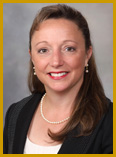
Dr. Jeanne Huddleston is the global pioneer in the use of mortality reviews to improve patient care. She will provide a 2020 update on what has been learned from the world-wide collaborative program she leads. She comes back to us based on popular demand from our patient safety community of practice and the great reviews of her prior presentations that have highlighted Opportunities for Improvement in issues of omission.
January 16, 2020
Anticoagulation Safety: A 2020 Update
Dr. Alan Jacobson is a pioneer and leader in the field of anticoagulation management, having implemented innovative strategies within the VA system to improve anticoagulation management and dramatically reducing risk with out-of-range INR and complications associated with anticoagulation therapy. He has been our leading speaker on anticoagulation safety and will bring the latest update on this daunting area of care.
December 19, 2019
Violence in Healthcare & Keeping Everyone Safe
Casey Clements, MD, PhD, is a renowned emergency medicine physician at the Mayo Clinic who has done a terrific job educating our audience in past webinars. He will educating us on one of the most daunting crises in healthcare – workplace violence. Dr. Clements always delivers very practical and actionable information when he speaks.
November 21, 2019
Leadership Tools, Performance Improvement, and 100 Day Plans

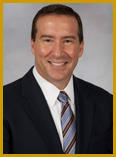
Dr. J. Michael Henderson and CEO Kevin Cook received rave reviews for their presentation on their quality journey of the Chief Medical Officer at the University of Mississippi Medical Center. Our audience survey revealed you wanted more from them regarding their tools such as their 100 Day Plans. They will be joined by Dr. Shannon Pittman, their chair of Family Medicine and Candice Whitfield, the Administrator of their CMO office who will discuss the work. Dr. Henderson is the former Chief Quality Officer of the Cleveland Clinic and has a long history of work in performance improvement. Kevin Cook is responsible for the strategic leadership of the UMMC Health System, including University Hospital, Wiser Women and Infants Hospital, Conerly Critical Care Hospital, Children’s of Mississippi, UMMC Holmes County and UMMC Grenada, and all UMMC-owned ambulatory clinics.
October 17, 2019
A Perfect Storm: The Midcourse Correction for Patient Safety
John Nance, JD, the bestselling author of Why Hospitals Should Fly and Charting the Course: Launching Patient-Centric Healthcare, and global patient safety leader who has inspired us for years, will speak regarding new emerging issues impacting patient safety related to caregiver satisfaction. He will preview some of the very important topics that he will cover in his next book. A frequent international speaker and advisor to leading medical centers, John has terrific insights into emerging threats challenging our industry. The ABC commentator for safety, he is a former airline captain, holds a law degree, and is expert on ethics in corporate governance. His leadership experience makes him one of the best advisors to healthcare.
September 19, 2019
In-flight Emergencies: Good Samaritans at Altitude
There are more than 44,000 commercial flights tracked per day by air traffic controllers. Many caregivers and healthcare workers have had the experience of a flight attendant calling for help while in the air. Dr. Robert Katzer will be delivering a world class presentation on what we need to know about caring for the public during an in-flight emergency. He is an Emergency Medicine physician, educator, and medical director for a busy fire and rescue program. Having heard him speak, our TMIT team gives him our highest recommendation. Dr. Gregory Botz, the co-founder of the Med Tac Bystander Care program who also teaches in-flight emergency care, will provide his perspective along with reactions from our patient advocate representative.
August 15, 2019
Workplace Violence: A Patient and Caregiver Safety Update
Workplace violence continues to be a critical Patient Safety AND Caregiver issue. Our industry has 4-5 times the frequency of other sectors. Richard Mereu, Chief Government Relations Officer of Government Relations for the Emergency Nurses Association, will address the key issues in their domain. Chief William Adcox and his colleagues at MD Anderson Cancer Center are global experts in Threat Safety Science that includes workplace violence.
July 18, 2019
The Quality Journey: The CEO and CMO View


Dr. J. Michael Henderson and CEO Kevin Cook will address the quality journey of the Chief Medical Officer at the University of Mississippi Medical Center. Dr. Henderson is the former Chief Quality Officer of the Cleveland Clinic and has a long history of work in performance improvement. Kevin Cook is responsible for the strategic leadership of the UMMC Health System, including University Hospital, Wiser Women and Infants Hospital, Conerly Critical Care Hospital, Children’s of Mississippi, UMMC Holmes County and UMMC Grenada, and all UMMC-owned ambulatory clinics.
June 20, 2019
Mortality Reviews and Patient Safety: A 2019 Update

Dr. Jeanne Huddleston is the global pioneer in the use of mortality reviews to improve patient care. She will provide a 2019 update on what has been learned from the world-wide collaborative program she leads. She comes back to us based on popular demand from our patient safety community of practice and the great reviews of her prior presentations that have highlighted Opportunities for Improvement in issues of omission.
May 16, 2019
Drug Diversion Scenarios & An Update on Patient Suicide

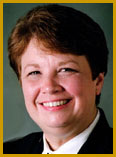 Kim New, JD, BSN, RN, is back speaking about Drug Diversion scenarios to address the growing problem and in response to her extraordinary reviews and number of requests from our community of practice to have her continue to teach and inspire us.
Kim New, JD, BSN, RN, is back speaking about Drug Diversion scenarios to address the growing problem and in response to her extraordinary reviews and number of requests from our community of practice to have her continue to teach and inspire us.
Vicki King is the Assistant Chief of Police at the MD Anderson Cancer Center and UT Health Science Center, UT Police at Houston. She is one of the pioneers of Threat Safety Science and leads a Threat Management team. She will address the latest issues regarding patient suicide prevention.
April 18, 2019
5 Rights of Pain Care, Opioids and Diversion Update
Dr. Gladstone McDowell is a global leader in pain management who will provide the latest perspective on how best practices in pain management can impact opioid addiction using the 5 Rights of Pain Care framework model.
Kim New, JD, BSN, RN, will be a reactor and provide a short update on the drug diversion issues. David Marx, JD, the founder of the Just Culture movement, will provide his view of the recent Vanderbilt medical error and indictment of a nurse.
March 21, 2019
Serious Adverse Events and Engaging Your Governance Board
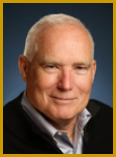
Tom Van Dawark has been a tremendous contributor to healthcare governance. He has been on community and business boards throughout his business career. He has been both a member of the Virginia Mason Hospital and Healthcare System Board Chair, and participated in work with the CEO which resulted in Virginia Mason being recognized today as a top 100 hospital. He is now working closely with boards and championing leadership, patient safety, and governance best practices.
February 21, 2019
From Burnout to Esprit de Corps and Safer Care

Dr. Stephen J. Swensen, a global expert on leadership and professional burnout, will be speaking on this critical topic. For three decades he has served patients at the Mayo Clinic as its Director of Leadership and Organization Development, Director of Quality, and Chairman of Radiology. Dr. Swensen will address the practical aspects of professional burnout and performance improvement by developing Esprit de Corps. He is now a Professor Emeritus and is very focused on helping organizations develop a safer path for their caregivers and patients.
January 17, 2019
Sepsis: A 2019 Update on Critical Issues
Casey Clements, MD, PhD, is a renowned emergency medicine physician at the Mayo Clinic who has done a terrific job educating our audience in past webinars. He will update us as of 2019 on the state of the art and care of sepsis. This remains to be one of our most sought after topics and Dr. Clements delivers very practical and actionable information every time he speaks.
December 20, 2018
Respectful Management of Serious Adverse Events: A 2018 Update

Jim Conway has been a tremendous contributor to what we know about how to handle serious adverse events. An IHI Senior Fellow and frequent speaker on the topic over the years, Jim will provide a 2018 update to the challenges to handling serious adverse events. Heather Foster RN, a frontline nurse who has championed the cause of “taking the high road” will provide her perspective and serve as a reactor.
November 15, 2018
Highlights of the Last Decade and High Impact Issues for 2019 and Beyond

John Nance, JD, and a group of safety leaders will help us celebrate this our 120th webinar of our high performer series marking our 10th anniversary. We will be addressing what we have learned from the high impact patient safety target areas of the past and how we can drive accountability for the changes we need in 2019 and beyond as we target issues of Threat Safety Science.
October 18, 2018
Dauntless Leaders in Nursing: Impacting Patient Safety
Kathleen Bartholomew, RN, MN is an accomplished author in patient safety with breakthrough professional books such as “Ending Nurse-to-Nurse Hostility” and “Charting the Course” (co-written with John Nance). From the bedside to the boardroom she challenges health care leaders to protect patients with research based presentations woven with narratives that resonate strongly with her audiences. She will address key issues in her latest book “The Dauntless Nurse: Communication Confidence Builder” and how they may empower us our patient safety mission.
September 20, 2018
Drug Diversion: The 2018 Crisis Update & Our Future
 Kimberly New has been a terrific speaker for us on drug diversion who is back by popular demand. She is a specialist in controlled substance security and DEA regulatory compliance and consults with healthcare facilities across the country. She is an attorney and an RN who will provide a 2018 update on practical and powerful insights to the exploding drug diversion problem. She is widely published and advises a number of leading medical centers. The webinar for this month is an update to the drug diversion crisis following the excellent and informative programs she led January 18th of 2018 and September 21st of 2017.
Kimberly New has been a terrific speaker for us on drug diversion who is back by popular demand. She is a specialist in controlled substance security and DEA regulatory compliance and consults with healthcare facilities across the country. She is an attorney and an RN who will provide a 2018 update on practical and powerful insights to the exploding drug diversion problem. She is widely published and advises a number of leading medical centers. The webinar for this month is an update to the drug diversion crisis following the excellent and informative programs she led January 18th of 2018 and September 21st of 2017.
August 16, 2018
The HR Department – Friend or Foe: Critical Patient & Caregiver Safety Events
The Human Resources department at many healthcare organizations have evolved from employee advocacy and concierge functions to becoming an employer’s “defense department”. In some cases HR has become weaponized against the very employees who trust them. The trend can put patient safety and quality leaders in a position of distrust with frontline staff. Cynthia Shapiro, a former HR leader and bestselling author of Corporate Confidential will be interviewed and react to caregiver patient safety cases and apply the “50 Secrets” of her book to the healthcare environment. We will discuss the positive ways of ensuring your HR department behaves in a proper manner after an adverse event.
July 19, 2018
Healthcare Professional Burnout: A Critical Caregiver & Patient Safety Issue

 Professional Burnout is epidemic in Healthcare Professionals. It negatively impacts both caregivers and patients. Dr. Swensen will present an evidence-based and validated strategy to move from Burnout to Esprit de Corps. Esprit is camaraderie, passion, and engagement wrapped in loyalty to the mission…it recreates fulfillment and joy in practice. Esprit is the single most impactful leading indicator (within our control) of patient experience, outcomes and safety, and driver of organizational effectiveness. Our second speaker, Nancy Conrad, the founder of the Conrad Foundation in honor of Pete Conrad, the astronaut and national hero who died the preventable death of a healthcare systems failure. She will announce the 2018 Global Pete Conrad Patient Safety Award winners.
Professional Burnout is epidemic in Healthcare Professionals. It negatively impacts both caregivers and patients. Dr. Swensen will present an evidence-based and validated strategy to move from Burnout to Esprit de Corps. Esprit is camaraderie, passion, and engagement wrapped in loyalty to the mission…it recreates fulfillment and joy in practice. Esprit is the single most impactful leading indicator (within our control) of patient experience, outcomes and safety, and driver of organizational effectiveness. Our second speaker, Nancy Conrad, the founder of the Conrad Foundation in honor of Pete Conrad, the astronaut and national hero who died the preventable death of a healthcare systems failure. She will announce the 2018 Global Pete Conrad Patient Safety Award winners.
June 21, 2018
Workplace Violence: A Critical Patient and Caregiver Safety Issue
Workplace violence has become a critical Patient Safety AND Caregiver issue. Our industry has 4-5 times the frequency of other sectors. Chief William Adcox and his colleagues at MD Anderson Cancer Center are global experts in Threat Safety Science that includes workplace violence. He shared the virtual podium with leaders from the healthcare community who will frame the problem and address some of the solutions in the pipeline. Rob Kramer, Director of Government Relations for the Emergency Nurses Association, addressed the key issues in their domain.
May 17, 2018
Drug Shortages: A Critical Patient Safety Issue
Drug shortages have become a critical patient safety issue and will continue to be a daunting challenge. Dr. Gregory Botz, Professor of Anesthesia and Critical Care at the MD Anderson Cancer Center and adjunct faculty at Stanford University School of Medicine, is a national patient safety champion who will frame the issue for us. Adriana Rivera, PharmD, will present key strategies and tactics to address this problem. She is a Clinical Pharmacy Specialist at MD Anderson and leader in Pharmacy Medication Management & Analytics.
April 19, 2018
End of Life Care: Learning from Mortality Reviews

 The Opportunities for Improvement (OFI’s) are enormous when it comes to end of life issues. Our audience continuously requests more learning from mortality reviews pioneered by the Mayo Clinic and led by Dr. Jeanne Huddleston. Her emphasis along with other speakers from her research collaborative this month will be on Opportunities for Improvement for the end of life care.
The Opportunities for Improvement (OFI’s) are enormous when it comes to end of life issues. Our audience continuously requests more learning from mortality reviews pioneered by the Mayo Clinic and led by Dr. Jeanne Huddleston. Her emphasis along with other speakers from her research collaborative this month will be on Opportunities for Improvement for the end of life care.
Patty Atkins, MS, RN, FACHE, CPPS, who is Vice President of Quality and Patient Safety at Sharp HealthCare, will discuss this important topic with attention to end of life goals in the ED, a nurse-led approach to end of life issues, and the barriers to nurse-led Advanced Illness Management (AIM) programs.
March 15, 2018
Just Culture – High Impact Case Studies
In prior webinars, David Marx, JD, established the principles of Just Culture, brought voices from frontline leaders to our audience, and will now present case studies that apply the concepts to real-life scenarios. David Marx draws on experience that spans more than two decades of examining laws, regulations, and industry practices to help lawmakers, regulatory authorities, and organizational leaders fulfill their responsibilities to produce safer outcomes. Our speakers and reactors will discuss applying Just Culture in the real world.
February 15, 2018
Just Culture – Voices from the Frontline
David Marx, JD, is a true pioneer in the internationally recognized safety practice of Just Culture. He spoke to our audience in December of 2017 and when we surveyed them, we received an extraordinary response requesting more speakers addressing implementation at the frontline. Our webinar this month fulfills that desire with frontline leaders who will talk about the practical issues of adoption. David Marx draws on experience that spans more than two decades of examining laws, regulations, and industry practices to help lawmakers, regulatory authorities, and organizational leaders fulfill their responsibilities to produce safer outcomes. His colleagues and our reactor panel will explore the drill down issues of adopting and sustaining a truly just culture.
January 18, 2018
Drug Diversion: A Drill Down Approach
 The webinar for this month is a follow up and detailed approach to the exploding drug diversion problem following an excellent and informative program September 21 of 2017 by Kimberly New. She will drill down on tactical detail regarding how an organization needs to deal with this issue.
The webinar for this month is a follow up and detailed approach to the exploding drug diversion problem following an excellent and informative program September 21 of 2017 by Kimberly New. She will drill down on tactical detail regarding how an organization needs to deal with this issue.
Kimberly New is a specialist in controlled substance security and DEA regulatory compliance and consults with healthcare facilities across the country. She is an attorney and an RN who will provide practical and powerful insights to the exploding drug diversion problem. She is widely published and advises a number of leading medical centers.
December 21, 2017
Just Culture in 2017 and Beyond

 David Marx, JD, is a true pioneer in the internationally recognized safety practice of Just Culture. He draws on experience that spans more than two decades of examining laws, regulations, and industry practices to help lawmakers, regulatory authorities, and organizational leaders fulfill their responsibilities to produce safer outcomes. David will bring us up to date on the state of Just Culture in 2017 and the future as it pertains to patient safety leaders.
David Marx, JD, is a true pioneer in the internationally recognized safety practice of Just Culture. He draws on experience that spans more than two decades of examining laws, regulations, and industry practices to help lawmakers, regulatory authorities, and organizational leaders fulfill their responsibilities to produce safer outcomes. David will bring us up to date on the state of Just Culture in 2017 and the future as it pertains to patient safety leaders.
John Nance, an internationally recognized safety expert in healthcare and aviation who is an award winning author, journalist, attorney, and patient safety advocate will be a reactor to David Marx’s presentation. John is the developer of Red Cover Reports, an NTSB-like approach to analyzing patient safety accidents. William Adcox, the Chief Security Officer for MD Anderson Cancer Center who is also the Chief of Police for the UT Health Science Center and a pioneer of Threat Safety Science will also be a reactor.
November 16, 2017
Sepsis and Triage: Maximizing Safety of Incoming Patients

 Our audience continuously requests more on sepsis. Dr. Jeanne Huddleston, our lead speaker this month, will address this topic to complement our prior sepsis webinars. Her emphasis will be on the triage and safety of incoming patients and the safety of patients being transferred out to other centers. She has led the breakthrough mortality review work at the Mayo Clinic that identified both sepsis and triage as two very important Opportunities for Improvement.
Our audience continuously requests more on sepsis. Dr. Jeanne Huddleston, our lead speaker this month, will address this topic to complement our prior sepsis webinars. Her emphasis will be on the triage and safety of incoming patients and the safety of patients being transferred out to other centers. She has led the breakthrough mortality review work at the Mayo Clinic that identified both sepsis and triage as two very important Opportunities for Improvement.
Dr. Greg Botz and Chief Bill Adcox, both of MD Anderson Cancer Center, and Vicki King of the University of Texas Police at Houston, will provide an update on the Med Tac bystander care program that is focused on patient safety during emergencies threatening the lives of previously healthy children, youth, and adults in their workforce years.
September 21, 2017
Drug Diversion and the Opioid Crisis
 The opioid crisis is touching everyone in our caregiver community. Through multiple recent research surveys, we have found our audience has realized that drug diversion is a patient safety crisis and that we need help at the frontline.
The opioid crisis is touching everyone in our caregiver community. Through multiple recent research surveys, we have found our audience has realized that drug diversion is a patient safety crisis and that we need help at the frontline.
Kimberly New is a specialist in controlled substance security and DEA regulatory compliance and consults with healthcare facilities across the country. She is an attorney and an RN who will provide practical and powerful insights to the exploding drug diversion problem. She is widely published and advises a number of leading medical centers.
August 17, 2017
Sepsis: Bringing it All Together Part 3
 This is the third webinar our sepsis series. Sepsis, according to Dr. Jeanne Huddleston our lead speaker this month, is one of the most common “Opportunities for Improvement” and a great area to have impact. Dr. Huddleston is the leading researcher in mortality reviews at the Mayo Clinic. Our national surveys have revealed that opportunities of omission and sepsis in particular have been identified as a major interest area of our research test bed.
This is the third webinar our sepsis series. Sepsis, according to Dr. Jeanne Huddleston our lead speaker this month, is one of the most common “Opportunities for Improvement” and a great area to have impact. Dr. Huddleston is the leading researcher in mortality reviews at the Mayo Clinic. Our national surveys have revealed that opportunities of omission and sepsis in particular have been identified as a major interest area of our research test bed.
Dr. Huddleston will sum up the terrific presentations in Part 1 and Part 2 and tie what we have learned to what has been gleaned from the Mayo Mortality Review process.
July 20, 2017
The Opioid Crisis: New Threats to Caregivers
Dr. Gladstone McDowell is one of our nation’s leading pain management experts who has practiced as a urologic oncologist, anesthesiologist, and pain management physician. He frequently speaks to caregivers as well as youth on the dangers of pain medicines and our current opioid crisis. He will address the latest life threatening developments from the introduction of Fentanyl additives to street drugs that are now threatening our first responders, emergency caregivers, and our patients.
June 15, 2017
Sepsis: Acute Care Part 2

 This is our second webinar in a series on sepsis. Sepsis, according to Dr. Jeanne Huddleston, the leading researcher in mortality reviews at the Mayo Clinic, is one of the most common “Opportunities for Improvement” and a great area to have impact. Our national surveys have revealed that opportunities of omission and sepsis in particular have been identified as a major interest area of our research test bed.
This is our second webinar in a series on sepsis. Sepsis, according to Dr. Jeanne Huddleston, the leading researcher in mortality reviews at the Mayo Clinic, is one of the most common “Opportunities for Improvement” and a great area to have impact. Our national surveys have revealed that opportunities of omission and sepsis in particular have been identified as a major interest area of our research test bed.
Dr. Huddleston will introduce the topic with a review of the new sepsis related knowledge that has been gleaned from the Mayo Mortality Review process. Casey Clements, MD, PhD, is a renowned emergency medicine physician at the Mayo Clinic who will build on our prior webinar in this second installment on the state of the art care of sepsis.
May 18, 2017
Sepsis: The Basics Part 2

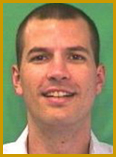 Sepsis, according to Dr. Jeanne Huddleston, the leading researcher in mortality reviews at the Mayo Clinic, is one of the most common “Opportunities for Improvement” and a great area to have impact. Our national surveys have revealed that opportunities of omission and sepsis in particular have been identified as a major interest area of our research test bed.
Sepsis, according to Dr. Jeanne Huddleston, the leading researcher in mortality reviews at the Mayo Clinic, is one of the most common “Opportunities for Improvement” and a great area to have impact. Our national surveys have revealed that opportunities of omission and sepsis in particular have been identified as a major interest area of our research test bed.
Dr. Ryan Arnold is an emergency medicine physician at Christiana Care Health System and is the Director of Research participating in over 60 different research projects, which include several multi-center clinical trials and investigator-initiated studies. He will be the speaker of the first part of a three part series on sepsis and will provide foundational approach to the issue including important definitions and an evidence based introduction to the topic. A reactor panel of patient advocates and experts will react to the presentation.
April 20, 2017
Failure to Rescue: Bedside Patient Rescue – A Great Opportunity

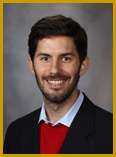 Failure to Rescue, according to Dr. Jeanne Huddleston, the leading researcher in mortality reviews at the Mayo Clinic, is one of the most common “Opportunities for Improvement” and a great area to have impact. Opportunities of omission have been identified as a major interest area of our research test bed through multiple surveys. She will introduce the topic and lead our discussions.
Failure to Rescue, according to Dr. Jeanne Huddleston, the leading researcher in mortality reviews at the Mayo Clinic, is one of the most common “Opportunities for Improvement” and a great area to have impact. Opportunities of omission have been identified as a major interest area of our research test bed through multiple surveys. She will introduce the topic and lead our discussions.
Dr. Santiago Romero-Brufau of the Mayo Clinic, will present the Bedside Patient Rescue program developed from the information yielded by mortality reviews as a great opportunity for performance improvement.
 Dr. Jeanne Huddleston presents two back to back sessions regarding the breakthrough work she and her colleagues at the Mayo Clinic have that have had enormous impact on improving quality across their system. She shared learnings on their journey of a detailed data analysis and stories of more than sequential 10,000 patient deaths. She shared the lessons learned through the development and evolution of the Mayo Clinic Mortality Review System and the opportunities to address issues of omission.
Dr. Jeanne Huddleston presents two back to back sessions regarding the breakthrough work she and her colleagues at the Mayo Clinic have that have had enormous impact on improving quality across their system. She shared learnings on their journey of a detailed data analysis and stories of more than sequential 10,000 patient deaths. She shared the lessons learned through the development and evolution of the Mayo Clinic Mortality Review System and the opportunities to address issues of omission.
Mayo Mortality Reviews: Next Generation Patient Safety – The presentation will provides a detailed look at how the Mayo Mortality Review System evolved, their findings, and how barriers were overcome to develop it.
Putting Mortality Reviews to Work – The Enormous Payoff! – The presentation provides a detailed outline and roadmap of how mortality reviews have been put to work at the Mayo Clinic and how other systems in Dr. Huddleston’s national collaborative are undertaking their journeys. The impact of the approach was presented using a comprehensive measurement and improvement approach.
February 16, 2017
Mortality Reviews: Great Learning from Our Early Journey
 Patty Atkins, RN, MS, CNS, CPPS, is responsible for Quality, Patient Safety and Lean Six Sigma for Sharp HealthCare, the largest healthcare system in San Diego, CA. She will share the terrific learning her organization has gleaned from mortality reviews, having worked with Dr. Jeanne Huddleston from the Mayo Clinic who are the leaders in this field. Her insights are just what our surveys have told us from frontline safety leaders in our National Research Test Bed.
Patty Atkins, RN, MS, CNS, CPPS, is responsible for Quality, Patient Safety and Lean Six Sigma for Sharp HealthCare, the largest healthcare system in San Diego, CA. She will share the terrific learning her organization has gleaned from mortality reviews, having worked with Dr. Jeanne Huddleston from the Mayo Clinic who are the leaders in this field. Her insights are just what our surveys have told us from frontline safety leaders in our National Research Test Bed.
Dr. Huddleston’s work at the Mayo Clinic has generated one of the strongest positive reactions we have ever had in our nearly 100 monthly sequential webinars. The breakthrough work that can have enormous impact on the patient safety of healthcare institutions.
January 19, 2017
Saving Lives Putting Mortality Reviews to Work – It does pay off!
 Dr. Jeanne Huddleston from the Mayo Clinic generated one of the strongest positive reactions we have ever had in our nearly 100 monthly sequential webinars for her work in mortality reviews. She will now show how such information can be used to save lives.
Dr. Jeanne Huddleston from the Mayo Clinic generated one of the strongest positive reactions we have ever had in our nearly 100 monthly sequential webinars for her work in mortality reviews. She will now show how such information can be used to save lives.
She and her colleagues at the Mayo Clinic have undertaken breakthrough work that can have enormous impact on the patient safety of healthcare institutions. She will share how the learnings on their journey to analyze the stories of all patient deaths are being converted into results. The information Dr. Huddleston shares helps us understand areas of critical importance that will compliment what we do in prevention of adverse events. Following her presentation, a reactor panel will discuss how the insights can be applied to frontline care
December 15, 2016
The Opioid Crisis: An Update for Safety Leaders
The opioid crisis in America is breathtaking and demands our attention. Dr. Gladstone McDowell is a global leader in pain management who is the Medical Director of Integrated Pain Solutions. He is a trained specialist in Urology, Urologic Oncology, Anesthesiology, Pain Management, and Patient Safety. Dr. McDowell will address the current opioid crisis and updated numbers just reported by the DEA. He will address the issue of gateway drugs and how our healthcare staff, patients, and families are at risk. We will discuss the latest in drug diversion and what safety leaders need to know and watch for in 2017.
November 17, 2016
A Safety Leaders Update: Is H.I.T. Evidence Based?
Ross Koppel, PhD, Adjunct Professor of Sociology, University of Pennsylvania in Philadelphia, has provided tremendous insight to our TMIT audience in the area of E.H.R. patient safety in multiple webinars. He is a leading scholar of healthcare IT, and of the interactions of people, computers, and workplaces. His articles in JAMA, JAMIA, Annals of Internal Medicine, NEJM, Health Affairs, Journal of Patient Safety, the Journal of Clinical Care, Journal of Managed Care, Chest, and AHRQ-M&Ms, et cetera, are considered seminal works.
Dr. Koppel will address a great question: Is Health Information Technology evidence based and what do we need to know?
October 20, 2016
Learning from Collaboration on Mortality Reviews: The Journey

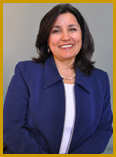 Dr. Huddleston and her colleagues at the Mayo Clinic have undertaken breakthrough work that can have enormous impact on the patient safety of healthcare institutions. In our July and August webinars, she shared the lessons learned through the development and evolution of the Mayo Clinic Mortality Review System, and will be our introduction speaker for our webinar this month.
Dr. Huddleston and her colleagues at the Mayo Clinic have undertaken breakthrough work that can have enormous impact on the patient safety of healthcare institutions. In our July and August webinars, she shared the lessons learned through the development and evolution of the Mayo Clinic Mortality Review System, and will be our introduction speaker for our webinar this month.
Our audience was polled and asked if they wanted to hear from groups at the front line who have learned from the Mayo Clinic work and are actively studying and collaborating on mortality reviews. Hanan Foley, MSN, RN, CPHQ, the Director of Quality and Safety at MedStar Georgetown University Hospital, will share their experience on the journey.
September 15, 2016
Harmonizing Healthcare Emergency Codes

 Leaders who have successfully harmonized their emergency codes will speak on lessons learned from this vital issue. With the frequency and severity of active shooter events, healthcare facility terrorism, and natural disasters striking healthcare institutions, coordination of the communication of emergency codes is critical. The discussion of the “how to” harmonize emergency codes and implementing plain language and simple text principles to improve effectiveness will be discussed. Stories illustrating how confusion regarding codes can lead to preventable deaths will be shared.
Leaders who have successfully harmonized their emergency codes will speak on lessons learned from this vital issue. With the frequency and severity of active shooter events, healthcare facility terrorism, and natural disasters striking healthcare institutions, coordination of the communication of emergency codes is critical. The discussion of the “how to” harmonize emergency codes and implementing plain language and simple text principles to improve effectiveness will be discussed. Stories illustrating how confusion regarding codes can lead to preventable deaths will be shared.
Dr. Bill Scharf and his colleagues at OSF have successfully accomplished harmonization of emergency codes across their health system and will share their experience. James Mitchell and Aaron Freedkin of Texas Children’s Hospital will describe their journey to harmonizing their emergency codes and moving to plain language for the world’s largest children’s hospital.
In our reactor panel, Chief Bill Adcox, Inspector Vickie King, and Dr. Greg Botz of MD Anderson Cancer Center will discuss the importance of standardization at major medical centers where multiple institutions share common sky walkways and common areas as well as have caregivers and staff who rotate through multiple areas where differing emergency codes are used. Jennifer Dingman will discuss the perspectives of the patient and the family.
August 18, 2016
Learn from Mortality Review AND the Living: Part 2 – A Deeper Dive
In response to the overwhelmingly positive evaluations of our webinar last month addressing Learning from Mortality Reviews, we have asked Dr. Jeanne Huddleston to take a deeper dive into what can be learned from mortality reviews and how participants can start a program and learn from others. Following her presentation, a reactor panel will discuss the new information building on our July webinar shared by Dr. Huddleston.
July 21, 2016
Learn from Mortality Review AND the Living: Next Generation Safety Learning System
Dr. Jeanne Huddleston and her colleagues at the Mayo Clinic have undertaken breakthrough work that can have enormous impact on the patient safety of healthcare institutions. She will share learnings on their journey to analyze the stories of all patient deaths. She will share the lessons learned through the development and evolution of the Mayo Clinic Mortality Review System.
Patient safety events are increasingly recognized as the 3rd leading cause of death including the typical adverse events we count and measure in patient safety. These existing measurement systems do not identify actionable opportunities for improvement nor provide obvious direction for next steps. The information Dr. Huddleston will share will help us understand areas of critical importance that will compliment what we do in prevention of adverse events. Following her presentation, a reactor panel will discuss the new information shared by Dr. Huddleston.
June 16, 2016
New Oral Anticoagulants: New Patient Safety Challenges
Dr. Alan Jacobson is a pioneer and leader in the field of anticoagulation management, having implemented innovative strategies within the VA system to improve anticoagulation management and dramatically reducing risk with out-of-range INR and complications associated with anticoagulation therapy.
Dr. Jacobson addressed the challenges associated with the new therapeutic drugs, which require less monitoring, but bring new risks. There are new lessons being learned that can help keep patients safer when these innovative new medications are being used.
The May webinar addressed other leading causes of death of students K-12, colleges, and young employees. The topics include practical issues addressing Opioid Overdose, Anaphylaxis, Cardiac Arrest, Choking, On-site Transportation accidents, Bullying and Abuse of Power that can lead to workplace and school violence, active shooter events, and the value of a Rapid Response Team approach in schools and institutions. Our audience response to the May webinar covering Opioid related adverse events was terrific and led us to take a deep dive on the leading causes of death of young people – students at schools, colleges, and on the job.
We were proud to have Dr. Greg Botz, a national Intensive Care and patient safety leader, address the High Impact Care Hazards facing schools, colleges, and healthcare institutions. He will address the critical knowledge, lifeline behaviors or competencies that  m
m ust be learned, and how assessment of such competencies may be undertaken. We introduced a new Medical-Tactical Certificate program that students can help lead in their school, college, or medical school.
ust be learned, and how assessment of such competencies may be undertaken. We introduced a new Medical-Tactical Certificate program that students can help lead in their school, college, or medical school.
Dr. Toff Peabody, a leading Emergency Medicine physician, updated us on the Dream Team concept successfully used in graduate training programs to combat burn out and introduce a new program being launched for Pre-med students. Students from leading Texas universities will reacted to the discussions as well as leading patient advocates.
April 28, 2016
The Opioid Patient Safety Crisis: Actions and Reactions
 Opioid related adverse events have become a critical patient safety issue as evidenced by actions taken last month by the FDA (see link: http://www.fda.gov/NewsEvents/Newsroom/FactSheets/ucm484714.htm) and CDC (see link: http://www.cdc.gov/drugoverdose/prescribing/guideline.html).
Opioid related adverse events have become a critical patient safety issue as evidenced by actions taken last month by the FDA (see link: http://www.fda.gov/NewsEvents/Newsroom/FactSheets/ucm484714.htm) and CDC (see link: http://www.cdc.gov/drugoverdose/prescribing/guideline.html).
We were proud to have Dr. Gladstone McDowell as our speaker; Dr. McDowell spoke extensively on the topic of pain management and the use and misuse of opioid medications. He discussed the latest patient safety developments and current strategies to optimize opioid use in the context of the “5 Rights of Pain Care®.” After his presentation, Dr. McDowell was joined by members of a reactor panel who discussed the key takeaways with our experts, and responded to questions from our webinar participants.
January 21, 2016
Health Information Technology Safety Community of Practice

 TMIT was delighted to have Ross Koppel, PhD, Adjunct Professor of Sociology, University of Pennsylvania in Philadelphia. His presentation “From MU to MUch less? What is CMS telling us?” We were also delighted to have Christopher Peabody, MD, MPH, Assistant Clinical Professor of the Department of Emergency Medicine, University of California in San Francisco, lead the launch of our Community of Practice. He presented “Health IT: Front-line Problems and Solutions.” John Nance, a world-class speaker, joined these presenters covering “HIT Accidents and Cybercrime Issues,” along with Dan Ford, one of our nation’s leading patient advocates, who gave his talk on “Reflections on Visioning E.H.R. Vendor Transition and Including Patient Advocates.”
TMIT was delighted to have Ross Koppel, PhD, Adjunct Professor of Sociology, University of Pennsylvania in Philadelphia. His presentation “From MU to MUch less? What is CMS telling us?” We were also delighted to have Christopher Peabody, MD, MPH, Assistant Clinical Professor of the Department of Emergency Medicine, University of California in San Francisco, lead the launch of our Community of Practice. He presented “Health IT: Front-line Problems and Solutions.” John Nance, a world-class speaker, joined these presenters covering “HIT Accidents and Cybercrime Issues,” along with Dan Ford, one of our nation’s leading patient advocates, who gave his talk on “Reflections on Visioning E.H.R. Vendor Transition and Including Patient Advocates.”
| Prior Global Summits
We have held a number of global summits and national meetings of leaders who are focused on high impact innovations. Videos of these meetings may be viewed below. The meetings were also broadcasted over the internet. |
||||||||||||
|
|
| The following presenters participated in a fast-paced day of multimedia presentations, front-line success stories, and interactive panels. Click on the links for their bios to get more detail about their backgrounds and expertise. | |
| Charles Denham, MD: TMIT; Harvard ALI David Hunt, MD, FACS: U.S. Department of Health & Human Services Dana Rohrabacher, MA: U.S. House of Representatives, R-CA Dennis Wagner, MPA: Centers for Medicare & Medicaid Services Chesley B. (Sully) Sullenberger III: Pilot, U.S. Airways (Retired) John Nance, JD: Best-selling Author and Pilot James Bagian, MD, PE: University of Michigan David W. Bates, MD, MSc: Brigham and Women’s Hospital David Classen, MD, MS: University of Utah Paul McGann, MD: Centers for Medicare & Medicaid Services Samantha M. Chao, MPH: Institute of Medicine Leah Binder, MA, MGA: The Leapfrog Group Perry Bechtle, DO: Mayo Clinic, Jacksonville, FL William Munier, MD, MBA: U.S. Department of Health & Human Services Arjun Srinivasan, MD: Centers for Disease Control and Prevention Jean D. Moody-Williams, RN, MPP: Centers for Medicare & Medicaid Services Farzad Mostashari, MD, ScM: U.S. Department of Health & Human Services |
Stephen Swensen, MD, MMM, FACR: Mayo Clinic College of Medicine J. Michael Henderson, MD: Cleveland Clinic Health System Mike Williams, MD, MBA: Hill Country Memorial Hospital Robert Chapman, MBA: Barry-Wehmiller Companies, Inc. Regina Holliday: Patient Rights Arts Advocate Trisha Torrey: Patient Advocate Lygeia Ricciardi, EdM: U.S. Dept. of Health & Human Services Mary Foley, RN, PhD: University of California Nancy Conrad: Conrad Foundation Sharon Rossmark, MBA: Zayos Global Ventures, LLC David Parda, MD, FACP: Allegheny General Hospital Ellen Canepa Brzytwa, RN, MSN, MPH: Ellen Brzytwa and Associates Gladstone C. McDowell, II, MD: Integrated Pain Solutions; TMIT Franck Guilloteau: Texas Medical Institute of Technology (TMIT) Thomas Zeltner, MD: Fondation Science et Cité, Switzerland Edward Kelley, PhD: World Health Organization, Switzerland |









 One of our biggest and most invisible risks come from Insider Threats. They range from individuals to culture faults that cause systemic damage.
One of our biggest and most invisible risks come from Insider Threats. They range from individuals to culture faults that cause systemic damage.

































































